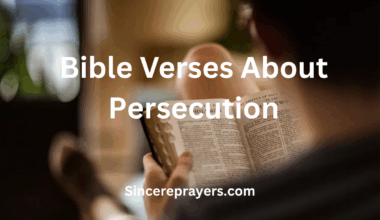In a world saturated with misinformation and deception, the Bible provides timeless guidance on distinguishing truth from lies. Lies are not merely words; they are distortions that can corrupt hearts, relationships, and communities. Scripture consistently warns against falsehood, emphasizing the consequences of deceit and the importance of living in integrity. By meditating on biblical teachings, believers can cultivate discernment and courage to stand for truth in every situation.
The prevalence of lies can be subtle or overt. Some lies manipulate, others deceive innocently, yet all erode trust. God’s Word offers both warnings and encouragement, showing that while deception exists, divine truth prevails. Through biblical examples, we learn the destructive nature of lies, whether in personal relationships, societal structures, or spiritual matters. God desires His people to speak honestly, reflect His character, and uphold justice through truth.

Scripture also highlights God as the ultimate source of truth. When believers align themselves with Him, they are empowered to resist lies and discern deception. Verses on lies teach that dishonesty brings harm to oneself and others, while truth fosters righteousness, peace, and integrity. The stories of prophets, kings, and ordinary believers reveal that honesty is more than a moral choice, it is a spiritual mandate.
This post will explore 35 powerful Bible verses about lies, deception, and truth. Each verse provides insight into God’s perspective on dishonesty and His call to righteousness. By reflecting on these Scriptures, readers can develop a deeper understanding of the spiritual dangers of lies and the blessings of truthfulness. These verses encourage believers to confront lies, embrace honesty, and anchor their lives in God’s unwavering truth.
35 Powerful Bible Verses About Lies in 2025
1. Proverbs 12:22
“The Lord detests lying lips, but he delights in people who are trustworthy.”
This verse emphasizes God’s clear stance on honesty. Lies are not trivial; they are morally offensive to the Lord. Conversely, integrity pleases Him and draws His favor. In daily life, this teaches that trustworthiness strengthens relationships and spiritual character. Believers are called to align their speech with God’s truth, demonstrating honesty in words and actions. Faithful speech reflects God’s nature and bears witness to His righteousness in a deceitful world.
2. Colossians 3:9
“Do not lie to each other, since you have taken off your old self with its practices.”
Here, Paul links lying to the sinful nature, urging believers to embrace their renewed life in Christ. Lies are remnants of a past, unredeemed self, incompatible with the new identity believers have in God. Honest communication fosters unity, love, and spiritual growth. By rejecting falsehood, Christians model the transformative power of Christ in daily conduct, reflecting His truth in both speech and character.
3. John 8:44
“The devil was a murderer from the beginning, not holding to the truth, for there is no truth in him.”
Jesus directly associates lying with Satan, revealing the spiritual roots of deception. Lies are not neutral—they originate from forces opposing God. Recognizing this spiritual dimension underscores the importance of vigilance and discernment. Believers are called to resist falsehood, seek God’s truth, and live as witnesses of His reality. Integrity becomes a spiritual defense against deception, aligning one’s life with God’s eternal standard.
4. Ephesians 4:25
“Therefore each of you must put off falsehood and speak truthfully to your neighbor, for we are all members of one body.”
Paul connects honesty to communal harmony, stressing that lies harm the body of Christ. Truthful speech strengthens relationships, promotes unity, and mirrors God’s character. Lies disrupt trust and spiritual fellowship, whereas honesty nurtures love, accountability, and integrity. Believers are challenged to prioritize truthfulness as a reflection of God’s presence within the Christian community.
5. Proverbs 6:16-19
“There are six things the Lord hates, seven that are detestable to him: haughty eyes, a lying tongue, hands that shed innocent blood, a heart that devises wicked schemes, feet that are quick to rush into evil, a false witness who pours out lies, and a person who stirs up conflict in the community.”
This passage lists lying as among the things God detests most, equating it with evil and violence. Lies not only harm others but also disrupt communities and relationships. The Scripture warns that deceit is a deliberate act of rebellion against God’s order. Believers are called to reflect God’s holiness by avoiding falsehood, speaking truth, and fostering peace in both personal interactions and broader social contexts.
6. Psalm 101:7
“No one who practices deceit will dwell in my house; no one who tells lies will stand in my presence.”
David emphasizes that deceit has no place before God. This verse teaches that honesty is essential for those seeking to live in God’s presence and experience His blessing. Lies hinder spiritual intimacy and disrupt fellowship with God and others. Believers are challenged to cultivate integrity in every sphere of life, ensuring that their words and actions align with God’s truth and character, thereby honoring Him fully.
7. Leviticus 19:11
“Do not steal. Do not lie. Do not deceive one another.”
In this concise command, God establishes honesty as a foundation of righteousness. Lies are grouped with theft and deception, highlighting their ethical seriousness. Living truthfully is a divine mandate that extends to all interactions. This verse calls believers to integrity in speech and conduct, reinforcing that honesty is more than morality—it is obedience to God. Upholding truth fosters trust, justice, and healthy relationships in every area of life.
8. Proverbs 19:5
“A false witness will not go unpunished, and whoever pours out lies will perish.”
This proverb underscores the consequences of dishonesty. Lies eventually bring judgment, whether through divine correction or the natural breakdown of trust. Truthful living protects both spiritual and social well-being, while falsehood erodes relationships and invites calamity. Believers are reminded that deceit carries real repercussions. Committing to truthfulness ensures integrity, aligns one with God’s justice, and strengthens credibility and accountability in every circumstance.
9. Revelation 21:8
“But the cowardly, the unbelieving, the vile, the murderers, the sexually immoral, those who practice magic arts, the idolaters and all liars—they will be consigned to the fiery lake of burning sulfur. This is the second death.”
Here, lying is linked to eternal consequences, revealing the gravity of dishonesty. Lies are not trivial but are part of a pattern that distances humanity from God. Believers are warned that unrepentant falsehood endangers both spiritual life and eternal destiny. This verse motivates Christians to uphold truth as a non-negotiable part of faith, ensuring their words and actions align with God’s righteous standards.
10. Proverbs 14:5
“An honest witness does not deceive, but a false witness pours out lies.”
Truthfulness is presented as a hallmark of integrity, while lying is portrayed as a betrayal of trust. Honest witnesses foster justice, clarity, and community stability, whereas false witnesses sow confusion and harm. Believers are called to cultivate reliability in speech and testimony, reflecting God’s character. Speaking truth, even when inconvenient, honors God and protects relationships from the destructive effects of deceit and misrepresentation.
11. Proverbs 26:28
“A lying tongue hates those it hurts, and a flattering mouth works ruin.”
This verse highlights the destructive power of lies. Deceptive words are not neutral—they actively harm relationships, communities, and personal integrity. Even lies that seem harmless or flattering can lead to ruin and betrayal. Believers are reminded to examine their words carefully, speaking truthfully to promote trust and love. Honesty preserves both spiritual and social well-being, reflecting God’s character in every interaction.
12. Psalm 34:13
“Keep your tongue from evil and your lips from telling lies.”
David encourages believers to guard their speech as a spiritual discipline. Lies are not only morally wrong but also spiritually corrosive. Controlling the tongue is a key aspect of godly living. Speaking truth builds integrity, fosters trust, and aligns one’s life with God’s holiness. By avoiding deceit, believers honor God, strengthen relationships, and cultivate a life marked by righteousness and wisdom.
13. Zechariah 8:16
“These are the things you are to do: Speak the truth to each other, and render true and sound judgment in your courts.”
This verse emphasizes both honesty and justice. Lies distort judgment and destroy trust, while truthfulness strengthens communal integrity. God calls His people to honesty in all areas of life, including communication, decisions, and governance. By speaking truth, believers reflect God’s righteousness, build stronger communities, and demonstrate the moral clarity that comes from following His Word.
14. Proverbs 21:6
“A fortune made by a lying tongue is a fleeting vapor and a deadly snare.”
This proverb warns that deceitful gain is temporary and destructive. Lies may bring short-term benefits, but they ultimately lead to downfall. Believers are encouraged to pursue integrity and diligence rather than dishonest shortcuts. God values long-term righteousness over immediate, deceitful advantage. Upholding truth preserves both spiritual and material stability, reflecting God’s justice and wisdom in everyday decisions.
15. Exodus 20:16
“You shall not give false testimony against your neighbor.”
One of the Ten Commandments, this verse highlights the serious moral obligation to speak truthfully about others. Lies against others harm reputation, relationships, and community justice. Honesty, on the other hand, upholds righteousness and aligns human behavior with God’s covenant. Believers are called to cultivate truthfulness as a reflection of God’s character and a foundation for ethical living.
16. Proverbs 19:9
“A false witness will not go unpunished, and whoever pours out lies will not go free.”
This verse stresses accountability for deceitful speech. Lies invite divine and societal consequences, highlighting the moral weight of dishonesty. Believers are encouraged to embrace integrity, ensuring that their words align with God’s standards. Truthful living protects relationships, maintains justice, and fosters spiritual growth. Avoiding lies demonstrates obedience and reverence toward God.
17. Jeremiah 9:5
“Everyone deceives their neighbor, and no one speaks the truth. They have taught their tongues to lie; they weary themselves with wrongdoing.”
Jeremiah laments widespread deceit, showing that habitual lying exhausts both the speaker and the community. Lies create cycles of mistrust and spiritual decay. Believers are warned to reject deception and cultivate truthfulness as a deliberate, disciplined practice. Honest speech nurtures personal integrity, strengthens relationships, and aligns one’s life with God’s righteousness.
18. Proverbs 12:17
“An honest witness tells the truth, but a false witness tells lies.”
Truthfulness and falsehood are contrasted here to show their clear consequences. Honesty promotes justice, stability, and trust, while lies cause harm and chaos. Believers are encouraged to uphold truth in all circumstances, reflecting God’s character through integrity. Speaking honestly builds credibility and protects both personal and communal relationships from the destruction of deceit.
19. 1 Peter 3:10
“For, ‘Whoever would love life and see good days must keep their tongue from evil and their lips from deceitful speech.’”
Peter emphasizes that blessings in life are linked to honesty. Deceptive speech leads to personal and relational harm, while truthfulness nurtures peace, prosperity, and spiritual growth. Believers are reminded that controlling their words is essential to honoring God and living a life marked by integrity. Honest speech brings protection, favor, and alignment with God’s will.
20. Proverbs 6:12-13
“A troublemaker and a villain, who goes about with a corrupt mouth, who winks maliciously with his eye, signals with his feet and motions with his fingers, who plots evil with deceit in his heart—he spreads discord.”
This passage links deceit with a destructive lifestyle. Lies are not isolated; they are part of a broader pattern of malicious behavior that harms individuals and communities. Believers are called to integrity and careful speech, rejecting manipulation and deceit. Living truthfully fosters peace, strengthens relationships, and reflects God’s character in every aspect of life.
21. Psalm 5:6
“You destroy those who tell lies; the Lord detests the bloodthirsty and deceitful person.”
This verse highlights God’s strong opposition to deceit and lying. Lies are not morally neutral—they are spiritually destructive and anger God. Dishonesty often leads to further harm and injustice. Believers are called to live in truth, rejecting deception in all forms. By doing so, they honor God, safeguard relationships, and reflect His holiness in daily life, avoiding the consequences of deceit that lead to destruction.
22. Proverbs 15:4
“The soothing tongue is a tree of life, but a deceitful tongue crushes the spirit.”
Here, the contrast between truthful and deceitful speech is clear. Lies damage hearts and relationships, whereas honest and kind words foster life and restoration. Believers are encouraged to speak with integrity, promoting healing, trust, and spiritual growth. Truthful communication reflects God’s character and builds stronger communities, while deceit leaves emotional and spiritual wounds that can take years to heal.
23. 1 John 2:4
“Whoever says, ‘I know him,’ but does not do what he commands is a liar, and the truth is not in that person.”
John links lying to spiritual hypocrisy. Claiming to know God while living in disobedience is a form of deceit. Believers are reminded that true faith is evidenced through obedience and honesty in actions and speech. Integrity in life and devotion to God ensures that words align with deeds, reflecting genuine knowledge of Christ and protecting the believer from spiritual deception.
24. Revelation 21:27
“Nothing impure will ever enter it, nor will anyone who does what is shameful or deceitful, but only those whose names are written in the Lamb’s book of life.”
This verse highlights that deceit has eternal consequences. Lies are a barrier to God’s presence and purity. Believers are called to live lives of integrity, avoiding deceit in every form. Upholding truth aligns believers with God’s kingdom, fostering holiness and spiritual security. Living honestly in speech and action prepares the believer for eternal fellowship with God.
25. Psalm 120:2
“Save me, Lord, from lying lips and from deceitful tongues.”
David’s plea shows that lies are not only morally wrong but also spiritually threatening. Deception can harm and mislead even the righteous. Believers are encouraged to seek God’s protection from deceit and to cultivate discernment and honesty in all relationships. Speaking and living truthfully aligns with God’s will and ensures personal and spiritual safety.
26. Proverbs 16:28
“A perverse person stirs up conflict, and a gossip separates close friends.”
Deception is often linked with conflict and division. Lies and gossip destroy trust and create unnecessary strife. Believers are called to pursue honesty and clarity in communication, promoting peace and unity. Living truthfully not only honors God but also strengthens relationships and communities, preventing the destruction caused by deceit and manipulation.
27. Matthew 5:37
“All you need to say is simply ‘Yes’ or ‘No’; anything beyond this comes from the evil one.”
Jesus emphasizes simplicity and honesty in speech. Exaggeration or deceit complicates communication and opens the door to sin. Believers are called to straightforward, truthful speech that reflects integrity. Living honestly demonstrates reliance on God’s guidance and fosters trust in relationships, avoiding the pitfalls of deception or manipulation.
28. Proverbs 24:28
“Do not testify against your neighbor without cause—would you use your lips to mislead?”
This verse warns against false accusations and lies about others. Deception damages reputation and undermines justice. Believers are called to honesty in testimony and communication, reflecting God’s righteousness and justice. Truthful speech builds trust, fosters harmony, and protects communities from the destructive effects of deceit.
29. Ephesians 4:15
“Instead, speaking the truth in love, we will grow to become in every respect the mature body of him who is the head, that is, Christ.”
Paul encourages believers to combine honesty with love. Lies are harmful, but truthful communication fosters spiritual maturity and unity. Speaking truthfully in love reflects God’s character, strengthens the church, and encourages personal growth. Believers are called to balance integrity with compassion, ensuring that honesty builds up rather than destroys.
30. Proverbs 12:19
“Truthful lips endure forever, but a lying tongue lasts only a moment.”
This proverb contrasts the permanence of truth with the fleeting nature of lies. Dishonesty may offer temporary gain, but it ultimately collapses under scrutiny. Believers are reminded that living truthfully brings lasting honor, trust, and spiritual stability. God’s wisdom calls for integrity in speech, ensuring that our words leave a positive and enduring impact.
31. Leviticus 19:12
“Do not swear falsely by my name and so profane the name of your God. I am the Lord.”
God commands honesty in all declarations, especially when invoking His name. Lies and false oaths not only harm others but also dishonor God. Believers are called to truthful speech in worship, testimony, and daily interactions. Honesty safeguards spiritual integrity and honors God as the ultimate authority over truth.
32. Proverbs 10:9
“Whoever walks in integrity walks securely, but whoever takes crooked paths will be found out.”
Integrity provides security, while lies and deceit lead to exposure and consequences. Believers are reminded that honesty is both a spiritual and practical safeguard. Walking in truth builds confidence, stability, and trust, reflecting God’s righteousness in every aspect of life. Lies, by contrast, ultimately collapse and bring harm.
33. James 3:14-15
“But if you harbor bitter envy and selfish ambition in your hearts, do not boast about it or deny the truth. Such ‘wisdom’ does not come down from heaven but is earthly, unspiritual, demonic.”
James links deception with selfish ambition and earthly motives. Lies often originate in pride, envy, or desire for personal gain. Believers are called to godly wisdom, rooted in truth, humility, and love. By rejecting deceitful motivations, they align with God’s will and cultivate a life of integrity and spiritual maturity.
34. Psalm 31:18
“Let the lying lips be silenced, which speak arrogantly against the righteous with pride and contempt.”
Lies are depicted as aggressive and harmful, often targeting the righteous. God’s justice silences deceitful words, but believers are called to respond with truthfulness and patience. Speaking honestly honors God and protects both personal character and the community from the destructive effects of arrogance and falsehood.
35. Proverbs 11:3
“The integrity of the upright guides them, but the unfaithful are destroyed by their duplicity.”
Integrity acts as a guiding principle, ensuring safety, wisdom, and spiritual alignment. In contrast, lies and duplicity lead to destruction. Believers are encouraged to live uprightly, embracing truth in all circumstances. Honesty provides moral clarity, fosters trust, and aligns life with God’s eternal standards, ensuring spiritual and relational stability.
Conclusion
Lies, while often appearing harmless, carry significant spiritual and relational consequences. Scripture consistently exposes deceit as incompatible with God’s nature and calls believers to embrace honesty in every aspect of life. By reflecting on these 35 Bible verses, we gain wisdom, understanding, and practical guidance on resisting deception and cultivating integrity. God’s Word reveals that truthfulness is not only a moral obligation but a spiritual responsibility that glorifies Him and strengthens our faith.
Living truthfully requires courage and diligence. The examples of prophets, disciples, and everyday believers demonstrate the challenges and blessings of upholding honesty. Lies may seem advantageous temporarily, but they ultimately destroy trust, hinder spiritual growth, and invite judgment. Conversely, speaking and living in truth aligns us with God’s character, builds stronger communities, and fosters personal peace. God delights in those who embody His truth, guiding them toward righteousness and lasting spiritual fulfillment.
As believers, we are called to be beacons of truth in a world often clouded by deceit. Embracing honesty nurtures spiritual maturity, empowers discernment, and strengthens our witness for Christ. By committing to integrity in speech and action, we honor God and reflect His character to others. These Scriptures serve as both warnings against lies and encouragement to pursue truth relentlessly, reminding us that God’s Word remains the ultimate guide in navigating a world filled with deception.





